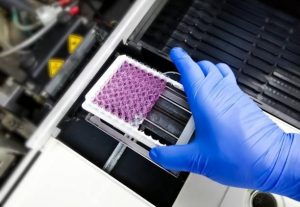What You Should Know About Gene Synthesis Methods
One of the fastest-growing technologies is gene synthesis; the growth is due to the increased use of genetics in various research fields and technological evolution. Today, gene synthesis is applicable in nearly all scientific areas, especially in agriculture and human tissue bioengineering practices.
Despite the few drawbacks, gene synthesis methodologies play a significant role in drug, vaccine, and gene development, further contributing to public health safety and extending the human lifespan.
There are different gene synthesis methods ideal for manufacturing different antibodies and proteins. The synthesis processes are also critical for drug, vaccine development, and disease diagnosis services. Here are more details you ought to know about gene synthesis methods.
Page Contents
Gene synthesis method
There are different gene synthesis methods you should know and how they function. The knowledge is critical to ensure you achieve the desired outcome by following the proper protocols since these methods cannot replace each other hence you have to be keen about the selection. Here are some popular gene synthesis methods:
1. Solid phase synthesis
In this method, the oligonucleotides are synthesized by attaching nucleotide residues stepwise to the end of the chain, one by one. The process involves four distinct functions: de-blocking, coupling, capping, and oxidation.
You should rely on this method only when creating samples and products of lengths less than 200bp; beyond that, the productivity and quality of the synthesis process begin to decline. The longer the chain, the lower the quality; hence you need to observe the DNA sequence length keenly.
However, this method can be crucial if you want high accuracy and quality outcome. The four processes involved will guarantee quality and high accuracy though it can sometimes be slow and hence not ideal for significant production purposes. Due to the complexity, you may have to pay a higher price, but the quality of your sample will guarantee quality results dieting various experiments.
2. Chip-based DNA synthesis
As per the name, the process relies on microarray chips and various electrochemical techniques to synthesize the genes. If you want to synthesize different types of genes simultaneously, this is an ideal process since it can synthesize the oligonucleotides in other sections of the chip.
Within the main chip are subsections and parts referred to as assembly pools where you can analyze different genes.
One advantage is the affordability due to the heavy reliance on technology, eliminating human input, and you can synthesize multiple genes simultaneously.
This makes it ideal for mass production purposes. However, the accuracy may be compromised due to the missing human input, over-reliance on machines, and too many synthesis processes at once.

3. PCR-based enzyme synthesis
The method generates different gene fragments through various cell systems. This is the best process to create longer gene sequences and chains. You can add different genes to the main system, such as the yeast system until you reach the maximum limit the system chromosome can accommodate. To guarantee the accuracy, you have to use a cell system.
Gene synthesis applications
The main applications of gene synthesis are mainly in biotechnology. The top application includes:
1. Antibody production
Gene synthesis is critical for producing antigens needed as target antibodies. Unlike the natural antibody production process, gene synthesis graces quality antibodies to prevent any toxicity to the host and prevent any side reactions. You can select a monoclonal or polyclonal antibody sequencing method based on your needs.
2. Recombinant protein production
The process involves gene synthesis services such as protein expression, antibody production, and sequencing. The process guarantees purity and high-quality proteins to boost the results of your experiments.
3. ELISA Assay test kit production
ELISA kit features different peptides embedded on the multi-well plates. Gene synthesis processes are necessary to manufacture these peptides to test for the existence of targeted proteins and antibodies. These kits are applicable for different roles such as dug yeast, diagnosis, disease detection, etc. It can accomplish these roles since the manufacturers optimize the kits for protein specificity.
These are the applications of gene synthesis; however, these applications are critical for other biotechnology processes, such as drug and vaccine development.
Certain drugs, such as antibody-based drugs, heavily rely on gene synthesis processes to manufacture products ideal for boosting immunity and curing inflammatory illnesses. They are also used for neuroscience experiments to analyze neural pathways and nerve signaling.

Benefits of Gene Synthesis methods
As the world undergoes technological evolution, gene synthesis technologies are critical for lowering drug costs and ensuring the availability of the right drugs to fight different illnesses. The reliance on technology makes drug development cheaper and faster, boosting response to unknown diseases through vaccine production and creating the ultimate cure.
One of the evident benefits of gene synthesis is how fast labs were able to manufacture the Covid-19 vaccines and drugs to suppress the virus’s effects on the body.
The use of technology also guarantees high accuracy to facilitate the creation of an ideal and targeted antibody, ensuring the production of the most effective drugs and efficient diagnosis methodologies. Therefore, when selecting a perfect lab to conduct the gene synthesis, you should consider factors that make it suitable for the processes.
